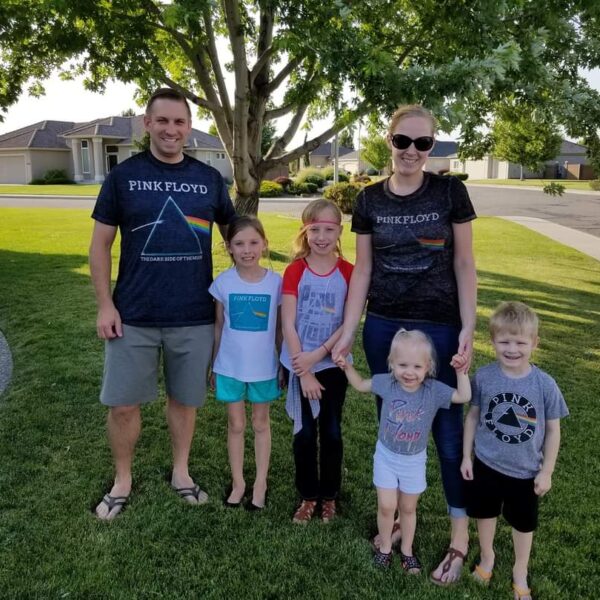As the center of Washington’s agricultural empire, it is important to recognize the planning opportunities afforded the Washington farmer in the Tri-Cities. This article explores the use of the family farm LLC for business succession planning.
The quintessential farmer is land rich and cash poor. And, the farmer recognizes the value of maintaining ownership of the farm in the family. So, how can the farmer best pass along the assets to the farmer’s children? How can he potentially save on estate taxes and reduce income taxes? Is there a way to simplify the administration of the farmer’s estate after death? Enter the family farm LLC.
First, what is an LLC? A limited liability company, commonly called an “LLC,” is a separate legal entity business structure authorized in Washington state (and every other state in the country) that combines the pass-through taxation of a partnership with the liability protection a corporation. An LLC can be member-managed or manager-managed. When it is member-managed, it operates like a general partnership. When it is manager-managed, it functions like a corporation. An LLC is allowed to own property in its own right and separate from individual assets. An LLC is generally taxed as a partnership. In this form, business profit or loss, plus other tax attributes, are not taxed at the LLC level, but flow through to the members. At formation of the Family LLC, the contribution of property in exchange for a partnership interest is generally not a taxable event.
For farm property, the LLC is often the best choice among the other entity options. The C-corporation imposes a double tax regime that is a nightmare for appreciating assets (like land). And, though the S-corporation can offer pass-through taxation, its ownership rules are too strict, which leads to the fear of losing the s-corporation qualification which results in the nightmare c-corporation double tax regime.
For succession planning, the LLC offers a myriad of benefits in addition to those offered above. In the event the parent wants to provide ownership to children, it offers a means to easily divide and fractionalize the ownership of the farm. For example, instead of passing, say, an undivided 1/578th interest in a family farm to a son or daughter by a deed recorded with the county auditor, the parent can transfer 500 units to the son or daughter on the books and records of the company. Thus, transfers are simplified.
The LLC also offers a method for defining the rights and obligations of all the owners through an operating agreement. This is one of the most important aspects of the family farm LLC. While mom and dad are the only owners, such an agreement is not usually necessary. But, as a new generation is introduced to farm ownership, it becomes imperative to set out the rules for all the owners.
The operating agreement sets out rules like: (1) voting rights among members; (2) management responsibility; (3) distribution of profits; (4) establishment of reserve funds; (5) ownership rights upon triggering events such as death and divorce (buy/sell agreement); (6) valuation methodology; (7) dispute resolution; (8) different equity interests; (9) debt obligations; (10) confidentiality covenants; and others.
Whether the farm passes to the next generation during the parents’ life or after death, the children (or any of the heirs) take over the existing farm subject to the existing operating agreement that was thoughtfully established by mom and dad.
The LLC also facilitates gifting as a strategy to potentially reduce or eliminate estate taxes. Functionally, the way the family farm LLC gifting strategy operates is by the generation transferring the wealth (the parents) forming an LLC, making themselves both managers and members. The generation receiving the wealth (the children) are made members of the company. Initially, the parents hold all of the membership interest in the company along with the assets it represents. Over time, the membership interest can be gifted to the children, within allowable gift tax amounts (currently $14,000 for 2017), and the parents retain the control of the company and its assets as the managers. More to come on gifting strategies in next month’s article.
There are a couple estate tax advantages available to farmers that are not adversely affected when the land is placed in an LLC. For the state of Washington and the state estate tax, one notable estate tax deduction for which a family farm may qualify is the farm deduction under WAC 458-57-165. It allows a deduction against the Washington State Estate tax if you have qualified real property used by yourself or a member of your family for a qualified use. For federal estate tax purposes, there is a potential valuation adjustment for qualified farm property. IRC 2032A allows an inflation-adjusted reduction of value of up to $1,120,000 for 2017.
In short, the Family Farm LLC offers superior liability protection, pass through income taxation, simpler transfer options, the implementation of robust organizational and management provisions—and all of this while still allowing the farmer to take appropriate estate tax deductions and perhaps further leverage gifting (and thus further reduce the estate tax).
390799-2
* Licensed, not practicing.
The opinions voiced in this material are for general information only and not intended to provide specific advice or recommendations for any individual or entity. This information is not intended to be a substitute for specific individualized tax or legal advice. We suggest that you discuss your specific situation with a qualified tax or legal advisor.
Securities offered through LPL Financial, member FINRA/SIPC. Investment advice offered through Cornerstone Wealth Strategies, Inc., a registered investment advisor and separate entity from LPL Financial.












